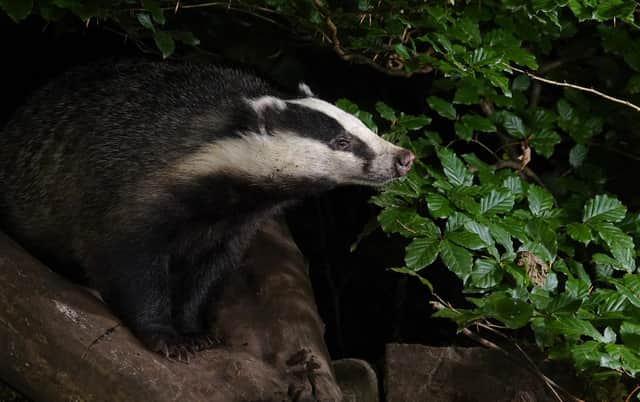A badger is no 'big bad wolf' and we should let them co-exist in peace - Polly Pullar


That morning he missed school because I wanted him to accompany me, for he’d never seen a badger. The concerned farmer and I successfully extricated the casualty without incident and the irate badger, its grey coat bristling like barbed wire, took off at speed grumbling and growling. Now 34, my son still talks about that day. He has been happily watching badgers ever since.
Children are like sponges – what we instil in them early provides vital grounding. And currently they are being ‘de-natured.’ So, it is a matter of urgency to help steer them to nurture and respect our beleaguered wildlife before it’s too late.
Advertisement
Hide AdAdvertisement
Hide AdRecent sensationalism and scaremongering surrounding a farmer’s sighting of a badger running through a Highland primary school car park during the day raises several serious issues. It also raises my hackles. His stark ‘big bad wolf’ warnings put out a negative image of a wrongly vilified animal, and undermine the wonderful work primary school staff do to encourage children to care for nature.
Irrationally, we categorise wildlife as good or evil. And the badger, our largest remaining predator, remains in the evil camp – due to continued bad press and misunderstanding. It was farcical to warn and frighten primary school children and their parents of dangers posed by a badger. The said animal has since been described as ‘vicious’, yet it has done nothing more than put in an appearance in an urban area. However, the threat we humans pose to wild things, especially badgers, is of grave concern. Our presence and behaviour threaten the survival of just about every last living thing on the planet. Many have gone already.
South of the border, the heinous badger cull is a national disgrace. We know that badgers contract bovine Tuberculosis (bTB), but there is zero evidence to prove that their removal reduces the incidence of this dread disease in the national herd. On the contrary, government figures reveal that bTB is becoming worse despite culls. The badger is a political pawn and it’s easier to blame it than to take a harsh look at ourselves, our avarice, and industrial-scale agriculture which doubtlessly leads to disease.
I don’t deny that badgers have a savage bite. Having worked closely with many road casualty animals, I know they will understandably defend themselves when cornered, fearful or in pain. However, the largest member of the Mustelid family is usually nocturnal and shy by nature, and when left undisturbed, co-exists peacefully close to humans.
Though statistics don’t paint a complete picture, the incidences of dog attacks on humans (and farm livestock) grow annually. An estimated 250,000 people go to casualty departments with life-threatening or minor canine caused injuries—some die. Any dog can turn into a killer. However, there are no records of anyone ever being killed or maliciously attacked by a badger.
Keen to practice what I preach I often show children badger clips from trail cameras. The joy on their faces is tangible. Isn’t it time to change our bigoted viewpoints?
Polly Pullar is an author, naturalist, and conservationist from Highland Perthshire.
